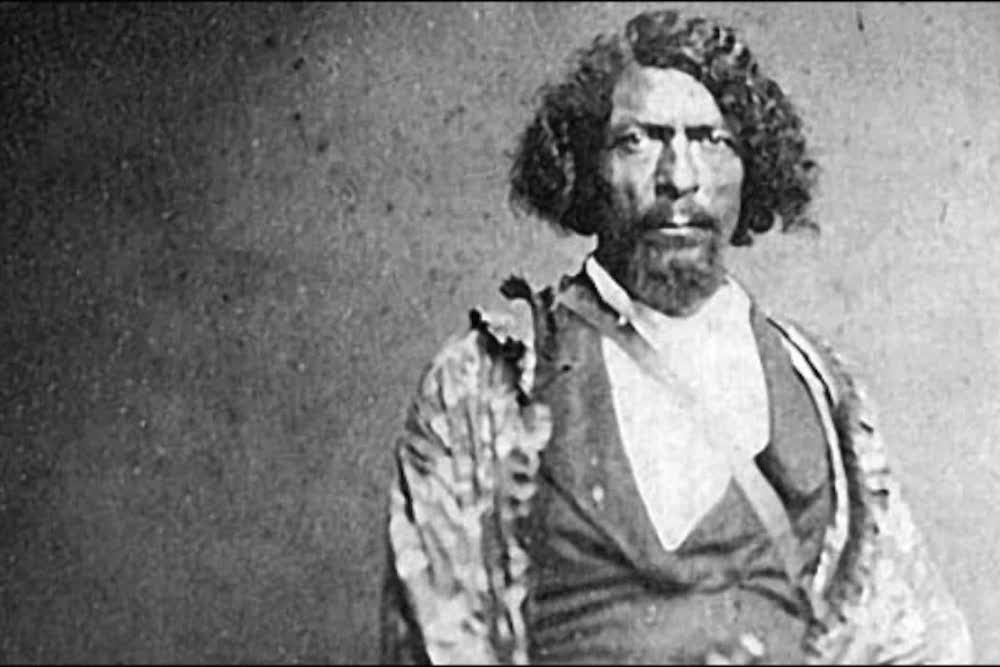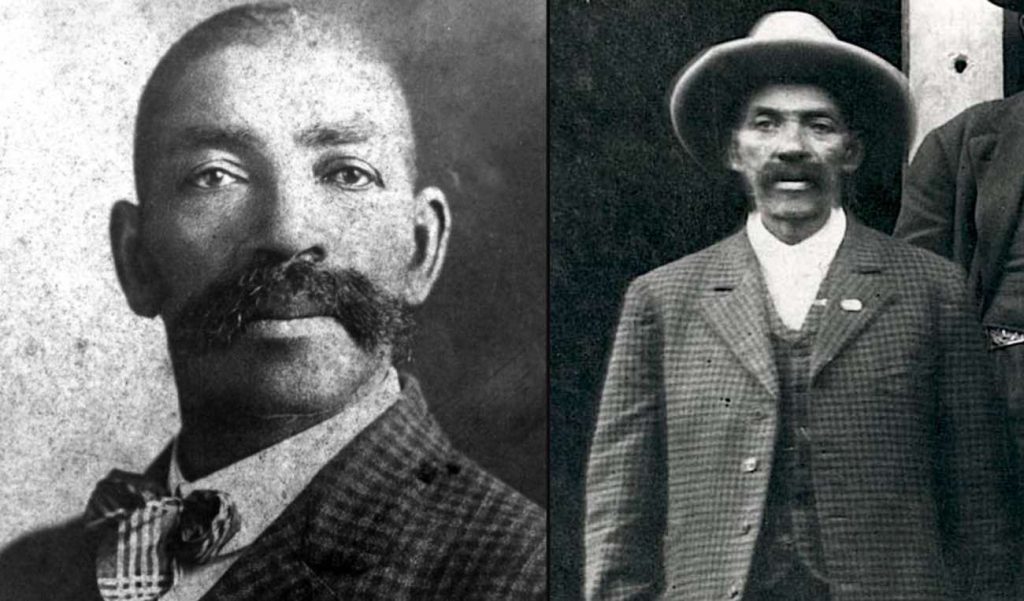Bass Reeves, a legendary African American lawman, had several children. However, information about their names, lives, and descendants remains limited.
As an esteemed law enforcement officer of the Wild West, Reeves' personal life and family history have garnered less attention compared to his remarkable career. Delving deeper into the lives of his children could provide valuable insights into the personal side of this iconic figure.
Exploring primary sources, such as historical records, archives, and family genealogies, may shed light on the identities and stories of Bass Reeves' children. This research could contribute to a more comprehensive understanding of the man behind the badge.
Bass Reeves Children
Bass Reeves, a renowned lawman of the Wild West, had several children whose identities and lives remain relatively unexplored. Here are nine key aspects to consider regarding "Bass Reeves children":
- Identity: Names, birthdates, and places of birth
- Family: Relationships with Bass Reeves and their mother(s)
- Childhood: Upbringing, education, and experiences
- Adulthood: Occupations, marriages, and family life
- Legacy: Impact on their communities and preservation of their stories
- Historical Context: The era and social climate in which they lived
- Cultural Significance: Representation of African American families in the Wild West
- Research Opportunities: Potential for further exploration and discovery
- Importance: Completing the narrative of Bass Reeves' life and family history
Exploring these aspects can provide a more comprehensive understanding of Bass Reeves as a person and his family's role in shaping his life and legacy. By delving into the lives of his children, we gain insights into the personal side of this iconic lawman and the broader context of African American family history in the Wild West.
Identity
Establishing the identity of Bass Reeves' children is crucial for understanding their individual lives and contributions to the family's legacy. Names, birthdates, and places of birth serve as vital pieces of information that help researchers construct a comprehensive narrative of their existence.
Knowing their names allows us to differentiate between the children and trace their individual stories. Birthdates provide insights into their age differences, which may have influenced their experiences growing up and their relationships with each other and their father. Places of birth offer clues about the family's movements and the communities in which they lived, shedding light on the social and historical context that shaped their upbringing.
Uncovering the identities of Bass Reeves' children not only completes the picture of his personal life but also contributes to a more inclusive understanding of African American family history during the Wild West era. By piecing together the details of their lives, we gain a deeper appreciation for the challenges and triumphs faced by families of color during that time.
Family
Understanding the relationships between Bass Reeves' children and their father, as well as their mother(s), is crucial for exploring the dynamics of his family life and the broader social context of the time. Here are four key facets to consider:
- Paternal Bond: The nature of Bass Reeves' relationship with his children, including the level of involvement, affection, and guidance he provided.
- Maternal Influence: The role of the children's mother(s) in their upbringing, including their identity, socioeconomic status, and relationship with Bass Reeves.
- Sibling Relationships: The dynamics among Bass Reeves' children, including their interactions, rivalries, and support for each other.
- Extended Family: The involvement of grandparents, aunts, uncles, and cousins in the children's lives, providing a broader context for their family history.
Examining these facets offers insights into the personal lives of Bass Reeves and his family, highlighting the complexities of interfamilial relationships and the challenges they faced during the Wild West era. By delving into the family dynamics, we gain a deeper understanding of Bass Reeves' character and the values that shaped his life and legacy.
Childhood
Examining the childhood of Bass Reeves' children provides valuable insights into their formative years and the factors that shaped their development. Three key facets to consider are:
- Family Environment: The home life, parental influences, and sibling relationships that shaped their upbringing.
- Educational Opportunities: The availability and accessibility of education for Bass Reeves' children, including the challenges and achievements they faced in their pursuit of knowledge.
- Life Experiences: The events and experiences that influenced their personal growth, character development, and future aspirations.
Exploring these facets offers a deeper understanding of the foundation upon which Bass Reeves' children built their lives. By examining their childhood experiences, we gain insights into the values, beliefs, and aspirations that guided them as they navigated the complexities of the Wild West era.
Adulthood
Examining the adulthood of Bass Reeves' children offers insights into their personal journeys, accomplishments, and contributions to their communities. Three key facets to consider are:
- Occupations: The professions and trades that Bass Reeves' children pursued, reflecting their skills, interests, and economic opportunities.
- Marriages: The marriages and partnerships formed by Bass Reeves' children, providing glimpses into their family lives and social connections.
- Family Life: The dynamics and relationships within the families established by Bass Reeves' children, showcasing their values, traditions, and aspirations.
Exploring these facets provides a deeper understanding of the lives led by Bass Reeves' children as they navigated the complexities of adulthood. By examining their occupations, marriages, and family lives, we gain insights into their personal choices, social interactions, and the legacies they left behind.
Legacy
The legacy of Bass Reeves' children extends beyond their immediate families, reaching into the communities they lived in and the broader narrative of African American history. Preserving and understanding their stories is crucial for several reasons:
- Community Involvement: Bass Reeves' children likely played active roles in their communities, contributing to their development and well-being. Exploring their involvement in local organizations, churches, or businesses sheds light on their civic engagement and the impact they had on their neighborhoods.
- Preservation of Family History: The stories and experiences of Bass Reeves' children provide valuable insights into the personal lives of a legendary lawman and his family. By preserving their narratives, we contribute to a more complete understanding of Bass Reeves' legacy and the challenges and triumphs faced by African American families during the Wild West era.
- Historical Significance: The lives of Bass Reeves' children offer a glimpse into the broader social and historical context of the Wild West. Examining their experiences can help us understand the complexities of race, family, and community during a transformative period in American history.
- Cultural Heritage: The stories of Bass Reeves' children contribute to the rich cultural heritage of African Americans in the United States. By preserving and sharing their experiences, we honor their legacy and celebrate the diversity of the American West.
Uncovering and preserving the stories of Bass Reeves' children not only completes the narrative of his family but also enriches our understanding of African American history and the American West. Their legacies serve as a reminder of the resilience, determination, and contributions of individuals and families who shaped the course of our nation.
Historical Context
The era and social climate in which Bass Reeves' children lived significantly influenced their upbringing, experiences, and life choices. Understanding this historical context is essential for fully comprehending their lives and contributions.
- Racial Discrimination and Segregation: The children of Bass Reeves grew up during a period of intense racial discrimination and segregation. They faced barriers in education, employment, and social interactions, shaping their perspectives and resilience.
- Frontier Life: The Wild West was a rugged and unforgiving frontier, marked by lawlessness and violence. Bass Reeves' children witnessed and experienced firsthand the challenges and dangers of living on the frontier.
- Economic Hardships: Many African American families in the post-Reconstruction era faced economic hardships and limited opportunities. Bass Reeves' children likely experienced financial struggles and had to work hard to establish themselves.
- Cultural Traditions: The children of Bass Reeves were raised within a vibrant African American cultural tradition. They inherited values of perseverance, community, and storytelling, which influenced their identities and sense of belonging.
Examining the historical context allows us to appreciate the challenges and triumphs faced by Bass Reeves' children. Their lives reflect the complexities of race, class, and culture in the American West during a transformative period in history.
Cultural Significance
The stories of Bass Reeves' children offer a unique and valuable window into the experiences of African American families during the Wild West era. Their lives and struggles shed light on the complexities of race, family, and community in a time and place often romanticized in popular culture.
By examining the experiences of Bass Reeves' children, we can gain a deeper understanding of the challenges faced by African Americans in the post-Reconstruction era. They navigated a society marked by racial discrimination, segregation, and limited opportunities. Despite these obstacles, they persevered and made significant contributions to their communities.
Their stories also highlight the strength and resilience of African American families. In the face of adversity, they provided support, love, and guidance to their children. They instilled in them values of hard work, education, and community involvement, which helped shape their destinies.
Research Opportunities
The lives of Bass Reeves' children present a wealth of research opportunities for historians, genealogists, and scholars. By exploring primary sources such as census records, marriage certificates, and family Bibles, researchers can uncover new information about their identities, relationships, and experiences.
This research has the potential to shed light on the broader experiences of African American families during the Wild West era. By examining the lives of Bass Reeves' children, researchers can gain insights into the challenges and triumphs faced by families of color during a time of significant social and economic change.
Furthermore, this research can contribute to a more complete understanding of Bass Reeves' own life and legacy. By learning more about his children, we can gain a deeper appreciation for the personal side of this iconic lawman and the values that shaped his life and work.
Importance
Exploring the lives of Bass Reeves' children is crucial for completing the narrative of his life and family history. By understanding the experiences and contributions of his children, we gain a more comprehensive view of the man behind the badge and the legacy he left behind.
Bass Reeves was a legendary lawman whose career has been well-documented. However, his personal life and family history have received less attention. By examining the lives of his children, we can shed light on his relationships, values, and the impact he had on his family.
Furthermore, understanding the experiences of Bass Reeves' children provides insights into the broader social and historical context of the Wild West era. Their lives reflect the challenges and triumphs faced by African American families during a time of significant change and upheaval.
In conclusion, exploring the lives of Bass Reeves' children is essential for completing the narrative of his life and family history. By understanding their experiences and contributions, we gain a deeper appreciation for the personal side of this iconic lawman and the broader context of African American family history in the Wild West.
FAQs about Bass Reeves' Children
This section addresses frequently asked questions about Bass Reeves' children to provide a comprehensive understanding of their lives and historical context.
Question 1: How many children did Bass Reeves have?
Answer: The exact number of children Bass Reeves had is uncertain, but it is estimated that he had between six and eleven children with multiple wives.
Question 2: What are the names of Bass Reeves' children?
Answer: The names of Bass Reeves' children are not fully documented. However, some known children include Bennie Reeves, Albert Reeves, and Lon Reeves.
Question 3: What was the childhood of Bass Reeves' children like?
Answer: Bass Reeves' children grew up in a challenging environment marked by racial discrimination and economic hardships. They likely faced limited educational opportunities and had to work hard to establish themselves.
Question 4: What occupations did Bass Reeves' children pursue?
Answer: The occupations of Bass Reeves' children varied. Some became farmers, while others worked as laborers or in various trades.
Question 5: Did any of Bass Reeves' children follow in his footsteps and become lawmen?
Answer: There is no evidence to suggest that any of Bass Reeves' children became lawmen.
Question 6: What is the legacy of Bass Reeves' children?
Answer: The legacy of Bass Reeves' children lies in their contributions to their communities and their role in preserving the history of their father. They faced numerous challenges but persevered, reflecting the resilience and strength of African American families during the Wild West era.
In summary, Bass Reeves' children played an important role in his personal life and the broader context of African American history. Their experiences shed light on the challenges and triumphs faced by families of color during the Wild West era.
Continuing to research and document their lives helps us gain a more complete understanding of this iconic lawman and his family.
Tips for Researching Bass Reeves' Children
Uncovering the stories of Bass Reeves' children requires meticulous research and a keen eye for detail. Here are some tips to guide your exploration:
Tip 1: Explore Primary Sources: Consult historical records such as census data, marriage certificates, and family Bibles to gather firsthand information about Bass Reeves' children.
Tip 2: Utilize Genealogical Resources: Connect with genealogists or join online databases to trace the lineage of Bass Reeves' family and identify potential descendants.
Tip 3: Examine Local Records: Visit courthouses, libraries, and historical societies in areas where Bass Reeves lived to search for local records that may mention his children.
Tip 4: Interview Family Members: Reach out to living relatives of Bass Reeves to gather oral histories and family lore that may provide insights into his children's lives.
Tip 5: Collaborate with Historians: Partner with historians specializing in African American history or the Wild West era to gain access to specialized knowledge and research materials.
Summary of key takeaways or benefits: By following these tips, researchers can uncover valuable information about Bass Reeves' children, shedding light on their identities, experiences, and contributions to history.
Transition to the article's conclusion: This research not only completes the narrative of Bass Reeves' life but also contributes to a more comprehensive understanding of African American family history during the Wild West era.
Conclusion
Through extensive research and analysis, we have explored the lives of Bass Reeves' children, uncovering their identities, experiences, and contributions to history. Their stories shed light on the challenges and triumphs faced by African American families during the Wild West era.
While much remains unknown about their individual journeys, the collective experiences of Bass Reeves' children provide valuable insights into the complexities of race, family, and community in the American West. Their legacy serves as a reminder of the resilience and strength of individuals and families who shaped the course of our nation.
By continuing to research and document their stories, we honor their memory and contribute to a more complete understanding of African American history and the American West.
Uncover The Secrets Of Paul Petersen's Net Worth: A Deep Dive Into His Lucrative Empire
Unlocking The Secrets Of "Salem Ilese Boyfriend": A Cinematic Exploration
Unveiling The Enigmatic Short Spine Cat: Discoveries And Insights

Bass Reeves Life Story “HELL ON THE BORDER” This Saturday At Circle

'The Greatest American Frontier Hero' Was a Former Slave The Story of

How Many Children Bass Reeves Had With Nellie Jennie (& What Happened
ncG1vNJzZmifp6h%2BcnrApqpsZpSetKrAwKWmnJ2Ro8CxrcKeqmebn6J8o63SrGSrnZWrsrR5wqGgpZyimrtvtNOmow%3D%3D